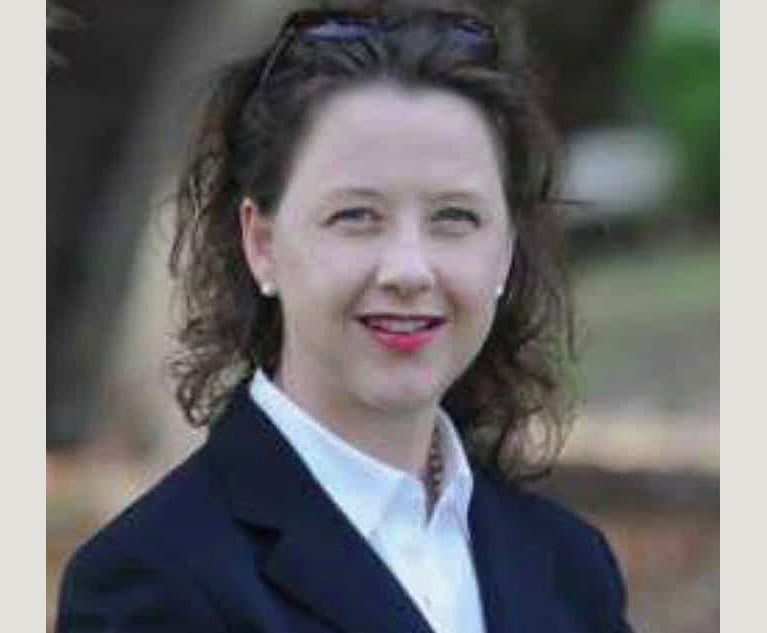Three Things Companies Hate About the CFPB's Investigative Demands
The CFPB will start soliciting comments on a host of matters—including enforcement, supervision and rule-making. Up first: civil investigative demands. Here are three things companies really don't like about the CFPB's investigative demands.
January 17, 2018 at 06:13 PM
7 minute read
 Mick Mulvaney. Credit: Gage Skidmore via Wikimedia Commons
Mick Mulvaney. Credit: Gage Skidmore via Wikimedia Commons Last month at the Consumer Financial Protection Bureau's headquarters in Washington, White House budget director Mick Mulvaney took his seat at the head of a conference room table and took questions about his early moves as the agency's acting director.
When the topic turned to the handling of challenges to CFPB subpoenas—known in agency parlance as “civil investigative demands”—Mulvaney perked up. At the Dec. 4 roundtable with reporters, Mulvaney said he was “just learning about the civil investigative demand process.”
But he was already looking forward to that part of the top job at the CFPB—presiding over appeals to the agency's subpoenas.
Mulvaney now wants to delve deeper. On Wednesday, Mulvaney said the CFPB would soliciting comments on a host of matters—including enforcement, supervision and rule-making. Up first: civil investigative demands.
“Comments received in response to this [request for information] will help the bureau evaluate existing [civil investigative demand] processes and procedures, and to determine whether any changes are warranted,” the CFPB said in a public announcement.
Companies in the bureau's crosshairs have long bemoaned the agency's process for adjudicating petitions to “modify or set aside” civil investigative demands—subpoenas that many criticize as overly broad and burdensome.
“It's an issue consumers generally are not too concerned about but has been an issue industry has been very vocal about,” said Davis Wright Tremaine partner Jonathan Engel, a former CFPB enforcement attorney who left the agency in July. Mulvaney's request for comments on the CFPB's functions, he added, is “not a surprising indication of the tone at the top there but an interesting development.”
Here are three points the financial industry can be expected to make in the forthcoming comment period.
Pick Your Poison
In the eyes of defense lawyers, mounting challenges to subpoenas through the CFPB's in-house process is a fool's errand. Richard Cordray, before he stepped down in November as the agency's director, routinely denied such appeals. Because the CFPB posts the appeal records on its website, the losses came with an unwelcome consequence: the early disclosure of an investigation.
Companies can make requests for confidential treatment, but those too are consistently denied. Some companies have tried an end run around the CFPB's in-house process by suing under the pseudonym “John Doe” to not only challenge a subpoena in federal court but also prevent the agency from disclosing the existence of an investigation.
In 2016, a federal judge in Washington appeared to sympathize with gripes about the CFPB's process of disclosing investigations after appeals have been adjudicated. Judge Randolph Moss of the U.S. District Court for the District of Columbia said he could imagine someone viewing that practice as “punitive” and designed to discourage the subjects of investigations from challenging the agency's investigative demands.
“In general, we don't disclose who's subject to an investigation, because it can be grossly unfair,” Moss said. Sometimes, he added, an investigation can overshadow any exoneration that follows. “You see damage like that all the time,” said Moss, a former partner at Wilmer Cutler Pickering Hale and Dorr.
Moss was inclined to keep the identities of the companies hidden. But because of an apparent clerical error, Prime Marketing Holdings, a California-based credit repair company, was eventually revealed as a target of the CFPBs. By then, the CFPB had already sued sued Prime Marketing in Los Angeles federal district court.
Fishing Expedition
Faced with a CFPB investigation, companies regularly argue the agency's civil investigative demands—commonly referred to as “CIDs”—are overly broad, burdensome and fall outside the bureau's jurisdiction.
Last year, Rent-A-Center—represented by Dorsey & Whitney partner J.H. Jennifer Lee, a former CFPB enforcement attorney—argued the CFPB lacked enforcement authority over it and that the investigative demands were “overbroad, indefinite and uncertain, and unduly burdensome.”
Similarly, Libre by Nexus, a bail bond company that critics accuse of preying on undocumented immigrants, challenged a subpoena from the CFPB as “excessively vague and broad” and argued that the agency “lacks supervisory and enforcement authority” over the business.
In a two-day span last October, Cordray denied both companies' appeals. Libre by Nexus later went to a Washington federal district court to challenge the subpoena. In December, the CFPB agreed to suspend the investigation while a judge considers the agency's authority to conduct the probe.
“Some of the CID process is, candidly, dictated by the Dodd-Frank statute. Notwithstanding that, I could imagine some would like to see a higher standard for issuing CIDs, such as probable cause,” said Venable LLP partner Gerald Sachs, a former CFPB enforcement attorney. “I could also imagine recommendations including that CIDs must be approved by the CFPB director's office and not just the enforcement director, take into account any burden on the recipient, and that the entire process—even for challenges to the CID—be confidential.”
Companies that take their subpoena challenges to court regularly lose. Not always. A Washington federal district court—and then the U.S. Court of Appeals for the D.C. Circuit—rejected one CFPB subpoena targeting the Accrediting Council for Independent Colleges and Schools. The courts found the demand was outside the agency's authority.
Time Crunch
The CFPB requires companies to “meet and confer” with the agency within 10 days of receiving a civil investigative demand. If a company wants to formally challenge to a subpoena, it must file an objection within 20 days of the receipt date.
Defense lawyers said that timeline is overly tight. They expect the industry, through the upcoming comment process, to ask for more time to prepare their arguments against the bureau's demands.
“That timetable is too fast, especially when the CID includes a laundry list of requests that require detailed investigation to determine what documents are available,” said Eric Mogilnicki, a partner at Covington & Burling. “By both providing a short time for an appeal and requiring a detailed factual record to support that appeal, the bureau's rule stacks the deck against anyone who wishes to oppose a CID.”
Read more:
Ex-Williams & Connolly Associate Snags Senior Adviser Post at Mulvaney's CFPB
Federal Judge, for Second Time, Won't Yank Mulvaney From CFPB Director's Chair
Companies Plot New Approaches to CFPB as Trump's Team Takes Control
Goodwin Procter Grabs Anthony Alexis, Formerly CFPB's Enforcement Chief
Inside Wells Fargo's Quest Against a Whistleblower Awarded $577K
This content has been archived. It is available through our partners, LexisNexis® and Bloomberg Law.
To view this content, please continue to their sites.
Not a Lexis Subscriber?
Subscribe Now
Not a Bloomberg Law Subscriber?
Subscribe Now
NOT FOR REPRINT
© 2025 ALM Global, LLC, All Rights Reserved. Request academic re-use from www.copyright.com. All other uses, submit a request to [email protected]. For more information visit Asset & Logo Licensing.
You Might Like
View All
Hogan Lovells, Jenner & Block Challenge Trump EOs Impacting Gender-Affirming Care
3 minute read
GOP-Led SEC Tightens Control Over Enforcement Investigations, Lawyers Say

SEC Sued for Failing to Reveal Records Involving Simpson Thacher Attorney
4 minute read
Ex-Prosecutor’s Trial Ends as Judge Throws Out Her Felony Indictment in Ahmaud Arbery Death Case
Trending Stories
- 1January Petitions Press High Court on Guns, Birth Certificate Sex Classifications
- 2'A Waste of Your Time': Practice Tips From Judges in the Oakland Federal Courthouse
- 3Judge Extends Tom Girardi's Time in Prison Medical Facility to Feb. 20
- 4Supreme Court Denies Trump's Request to Pause Pending Environmental Cases
- 5‘Blitzkrieg of Lawlessness’: Environmental Lawyers Decry EPA Spending Freeze
Who Got The Work
J. Brugh Lower of Gibbons has entered an appearance for industrial equipment supplier Devco Corporation in a pending trademark infringement lawsuit. The suit, accusing the defendant of selling knock-off Graco products, was filed Dec. 18 in New Jersey District Court by Rivkin Radler on behalf of Graco Inc. and Graco Minnesota. The case, assigned to U.S. District Judge Zahid N. Quraishi, is 3:24-cv-11294, Graco Inc. et al v. Devco Corporation.
Who Got The Work
Rebecca Maller-Stein and Kent A. Yalowitz of Arnold & Porter Kaye Scholer have entered their appearances for Hanaco Venture Capital and its executives, Lior Prosor and David Frankel, in a pending securities lawsuit. The action, filed on Dec. 24 in New York Southern District Court by Zell, Aron & Co. on behalf of Goldeneye Advisors, accuses the defendants of negligently and fraudulently managing the plaintiff's $1 million investment. The case, assigned to U.S. District Judge Vernon S. Broderick, is 1:24-cv-09918, Goldeneye Advisors, LLC v. Hanaco Venture Capital, Ltd. et al.
Who Got The Work
Attorneys from A&O Shearman has stepped in as defense counsel for Toronto-Dominion Bank and other defendants in a pending securities class action. The suit, filed Dec. 11 in New York Southern District Court by Bleichmar Fonti & Auld, accuses the defendants of concealing the bank's 'pervasive' deficiencies in regards to its compliance with the Bank Secrecy Act and the quality of its anti-money laundering controls. The case, assigned to U.S. District Judge Arun Subramanian, is 1:24-cv-09445, Gonzalez v. The Toronto-Dominion Bank et al.
Who Got The Work
Crown Castle International, a Pennsylvania company providing shared communications infrastructure, has turned to Luke D. Wolf of Gordon Rees Scully Mansukhani to fend off a pending breach-of-contract lawsuit. The court action, filed Nov. 25 in Michigan Eastern District Court by Hooper Hathaway PC on behalf of The Town Residences LLC, accuses Crown Castle of failing to transfer approximately $30,000 in utility payments from T-Mobile in breach of a roof-top lease and assignment agreement. The case, assigned to U.S. District Judge Susan K. Declercq, is 2:24-cv-13131, The Town Residences LLC v. T-Mobile US, Inc. et al.
Who Got The Work
Wilfred P. Coronato and Daniel M. Schwartz of McCarter & English have stepped in as defense counsel to Electrolux Home Products Inc. in a pending product liability lawsuit. The court action, filed Nov. 26 in New York Eastern District Court by Poulos Lopiccolo PC and Nagel Rice LLP on behalf of David Stern, alleges that the defendant's refrigerators’ drawers and shelving repeatedly break and fall apart within months after purchase. The case, assigned to U.S. District Judge Joan M. Azrack, is 2:24-cv-08204, Stern v. Electrolux Home Products, Inc.
Featured Firms
Law Offices of Gary Martin Hays & Associates, P.C.
(470) 294-1674
Law Offices of Mark E. Salomone
(857) 444-6468
Smith & Hassler
(713) 739-1250








